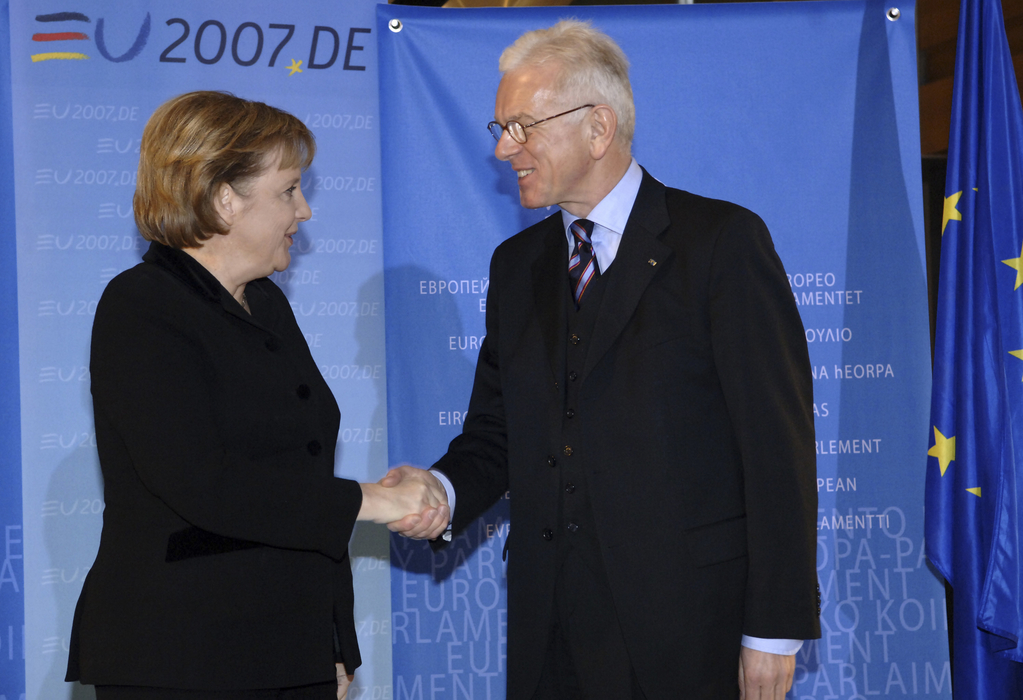‘German Council Presidency: a huge task, but one we can manage’

Hans-Gert Pöttering and Angela Merkel, during the presentation of the priorities of the German Presidency of the Council. © European Union 2007 – EP
Hans-Gert Pöttering, President of the European Parliament during the last German Council Presidency in 2007, has issued the following statement:
The German Council Presidency in the first half of 2007 was also a major challenge. The EU was in a deep crisis following the failure of the Constitutional Treaty in France and the Netherlands. The “Berlin Declaration” of 25th March 2007, a declaration of the European institutions – Council, Parliament and Commission – paved the way for the “Lisbon Treaty”. German Chancellor Angela Merkel, then President of the European Council, made a significant contribution to it. As the most experienced head of government she can also make a decisive contribution to solving today‘s problems.
The German Presidency clearly needs to address the following issues :
- The EU is based on the rule of law – that is its greatest strength. Compliance with the law is a precious asset which must be resolutely defended. Nationalism must not return to Europe’s present or future either by breaking European law or through the back door of national constitutional courts. Compliance with the law is the basis for trust, and trust the basis for European solidarity.
- A decision or compromise on the 750bn programme to promote the future tasks of the EU single market would be a great success. Overcoming the consequences of the Corona crisis is not merely a question of re-establishing economic prosperity but one of European assertiveness and solidarity, without which the EU has no future.
- Agreement on the EU financial framework 2021-2027 must contribute to strengthening the sovereignty of Europe or rather, that of the EU. The EU cannot be constantly given new tasks without equipping it with the necessary financial means to complete them. Research and development and the promotion of youth programmes such as ERASMUS must have priority.
- As well as climate change, digitalisation and asylum policy, there is the ongoing task of seeking to create a common Foreign, Security and Defence Policy and an “Army of Europeans.“ This also includes securing strategic areas of Europe‘s economy and infrastructure against a “sell-out“, in particular to authoritarian and totalitarian states (e.g. China).
- During the German Presidency the “Conference on the Future of Europe“ will begin. It must develop into an intensive dialogue with all political levels and with the citizens of the EU. The results should not exclude changes to the treaties, including :
- EU competences in health and civil protection
- Majority voting in the Council on foreign policy decisions
- Majority voting in the Council on European taxation (e.g. on digital companies) which will also prevent or limit the EU’s continuing indebtedness
- Majority voting in the European Parliament in all areas of European legislation
- Reform of European competition law to bolster Europe’s confidence.
Hans-Gert Pöttering,
President of the Former Members’ Association (FMA) and
Chair of the Board of Trustees of the House of
European History in Brussels
Former President of the European Parliament
This article is available in the following languages:
